- europages
- >
- COMPANIES - SUPPLIERS - SERVICE PROVIDERS
- >
- clinching nut
Results for
Clinching nut - Import export
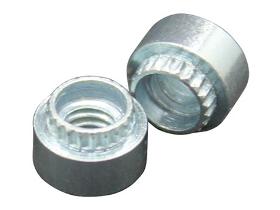
HONSEL-GROUP
Germany
Self-clinching rivet nuts from series 10.455 and 10.456 are riveted into the component. A shaft is passed through a pre-punched hole in the component and riveted on the opposite side. The base material is not deformed in the process. These threaded fasteners feature serrated shafts that cut into the metal sheet surface, ensuring a high torsion resistance and torque load capacity. In addition to insertion with the aid of a press, these models can also be inserted using hand tools.
Request for a quote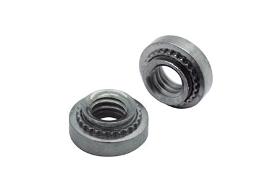
HONSEL-GROUP
Germany
The self-clinch nut is a threaded fastener that has a knurl and a notch. The knurl ensures while embedding into the metal sheet the displaced material to spread evenly in the notch. This ensures an especially good stability. Advantages: • high resistance to torque strain • absolutely fl ush sheet metal backsides • compact and clean - ideal for example for use in electronic and light engineering
Request for a quote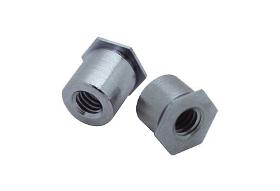
HONSEL-GROUP
Germany
Self-clinch standoffs can serve as spacers or distance pieces. The hexagon head is simply pressed into the metal sheet, that the material will compress in the nut. The pressing in at the head finishes completely flush. A wide selection of open or closed versions is available. For applications with high strain versions with larger heads and higher compressive tensile strengths can be produced.
Request for a quote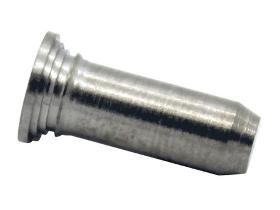
HONSEL-GROUP
Germany
Self-clinch studs are fasteners that have a serration under the head. At inserting into the metal sheet it presses the displaced material into the rivet ring to secure the fastener. Sheet metal fasteners with internal and external threads are especially suitable for working with thin metal sheets starting with 0.5 mm thickness. This reduces the thickness of the elements in general in favour of lower weight and less material. Aft er processing they are permanently connected to the base material. The screwed connecti ons can be removed aft erwards without risking displacement of the fastener. Through this the production processes are rationalized and secured.
Request for a quote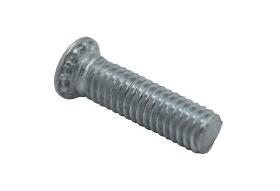
HONSEL-GROUP
Germany
Self-clinch studs (flush head studs) are fasteners that have a serration under the head. At inserting into the metal sheet it presses the displaced material into the rivet ring to secure the fastener. Advantages: • high resistance to torque strain • no damage of coated surfaces - ideal for sheet panels • always vertical to the sheet • head is flush on the metal sheet after insertion
Request for a quoteDo you sell or make similar products?
Sign up to europages and have your products listed

ARNOLD UMFORMTECHNIK GMBH & CO. KG
Germany
How the fastener functions The material is peeled and a collar formed so that a flush and positive fit of the fastener is created with the sheet metal material. This can either transfer very high forces (e.g. AX 20x14) or with the version that is flush with the sheet, the fastener can be used to directly mount connected parts (e.g. AX 16x4). This principle can be applied to almost every material. The benefits of the RIVORM® HR clinch nut one nut for all sheet metals up to 4.5 mm cost-saving due to fewer variants high-strength, press-hardened and hot-stamped steels very good torsional strength regardless of metal strength high pull-out force The benefits of the RIVORM® TR rivet for fitting ties and springs fully automated processing possible in the subsequent composite tool can be applied universally for different assembly jobs, such as fastening electrical control units, or other plastic parts, simply by clipping them in
Request for a quote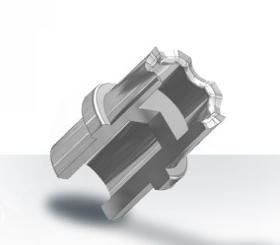
ARNOLD UMFORMTECHNIK GMBH & CO. KG
Germany
Manufacture by machining is battling against the rising cost of materials and long machining times. That's why many companies are finding our forming process for hollow parts of increasing interest. We have other forming options for machine-finishing in-house. Our cold-forming process is distinctive – including for thin-walled hollow parts because of: rolled (chip-free manufacture) external threads suitable surfaces for maximum corrosion requirements Some examples of Conform® hollow parts and nuts: sensor housing union nuts for hydraulic, brake and fuel lines clinch nuts
Request for a quoteResults for
Clinching nut - Import exportNumber of results
8 ProductsCompany type